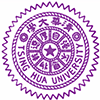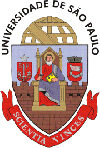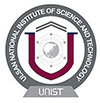In our last story, we looked at the Chinese teams competing at ASC14. Now let’s get some deets on the non-Chinese teams competing in Guangzhou….
![]() Nanyang Technological University, Singapore (Nanyang Tech): One of the largest universities in Singapore, with close to 35,000 students. Established in 1981, it’s one of the youngest schools in the competition – but don’t let youth fool you. Nanyang Tech brings some serious intellectual heft to the table. The worldwide QS university rankings peg Nanyang Tech as the 41st best university in the world, the 8th best in Asia, and the second-best university under the age of 50. In computer science, QS rates Nanyang Tech as the 22nd best in the world, and 6th in Asia. (Those QS guys really slice ‘n dice their data, eh?) Rankings aside, Singapore is investing heavily in supercomputing resources and advanced technology training. The country sees this as a vital part of maintaining and enhancing competitiveness and the Singapore way of life. This team could be a dark horse at ASC14 and is certainly a team to watch.
Nanyang Technological University, Singapore (Nanyang Tech): One of the largest universities in Singapore, with close to 35,000 students. Established in 1981, it’s one of the youngest schools in the competition – but don’t let youth fool you. Nanyang Tech brings some serious intellectual heft to the table. The worldwide QS university rankings peg Nanyang Tech as the 41st best university in the world, the 8th best in Asia, and the second-best university under the age of 50. In computer science, QS rates Nanyang Tech as the 22nd best in the world, and 6th in Asia. (Those QS guys really slice ‘n dice their data, eh?) Rankings aside, Singapore is investing heavily in supercomputing resources and advanced technology training. The country sees this as a vital part of maintaining and enhancing competitiveness and the Singapore way of life. This team could be a dark horse at ASC14 and is certainly a team to watch.
 National Tsing Hua University, Taiwan (NTHU): A long-time Student Cluster Competition participant dating all the way back to 2008, when they took home the Highest LINPACK award. They took 2009 off, then came roaring back in 2010 to take the Overall Championship at SC10 in New Orleans. NTHU secured their second consecutive SC victory at SC11 in Seattle, barely edging out a surging NUDT team.
National Tsing Hua University, Taiwan (NTHU): A long-time Student Cluster Competition participant dating all the way back to 2008, when they took home the Highest LINPACK award. They took 2009 off, then came roaring back in 2010 to take the Overall Championship at SC10 in New Orleans. NTHU secured their second consecutive SC victory at SC11 in Seattle, barely edging out a surging NUDT team.
In 2012, they attempted to score an unprecedented “Three-peat” but finished second to University of Texas in a closely fought battle. After a disappointing fourth-place finish at ASC13 the team has been entirely retooled, and they’re looking to fight their way back into the top echelon of international competitors. A victory at ASC14 could be just what the doctor ordered.
![]() Purdue University, U.S. (Team Boilermaker): Student Cluster Competition aficionados already know Team Boilermaker. The team from West Lafayette has been a fixture at cluster competitions since they began in 2007. The team has usually finished in the middle of the pack, but is always competitive. What sets them apart is their commitment to HPC education and the depth of knowledge and skills of their team members.
Purdue University, U.S. (Team Boilermaker): Student Cluster Competition aficionados already know Team Boilermaker. The team from West Lafayette has been a fixture at cluster competitions since they began in 2007. The team has usually finished in the middle of the pack, but is always competitive. What sets them apart is their commitment to HPC education and the depth of knowledge and skills of their team members.
Team Boilermaker received a makeover since their last outing. Gone are the familiar faces that populated their bench for so many years; the new ones seem more enthusiastic and bright-eyed. (I’ll try to measure their eye brightness sometime during the competition.)
There are rumors on the cluster circuit that longtime Purdue coach Steven Harrell might be looking to put together a Big 10 cluster competition, with the winner (or an all-star team) competing at a major international cluster-fest. I’m all for that. More cluster competitions means more fun, at least as far as I’m concerned.
 University of Sao Paulo, Brazil (Team Brazil): Finally, after all these years, we have a cluster competition entrant from South America. Sure, we had Costa Rica in the ISC competitions, but the Rainforest Eagles hailed from Central America, which just isn’t the same thing. I briefly met the team (video on the way) and talked with their coach, and I’m impressed by their attitudes and enthusiasm for the competition. Brazil is working hard to increase their in-country HPC resources.
University of Sao Paulo, Brazil (Team Brazil): Finally, after all these years, we have a cluster competition entrant from South America. Sure, we had Costa Rica in the ISC competitions, but the Rainforest Eagles hailed from Central America, which just isn’t the same thing. I briefly met the team (video on the way) and talked with their coach, and I’m impressed by their attitudes and enthusiasm for the competition. Brazil is working hard to increase their in-country HPC resources.
Participating in a Student Cluster Competition is a good way to attract student interest and give them some real-world experience at the same time. Along those lines, University of Sao Paulo will be hosting the upcoming HPC Advisory Council Conference and Exascale Workshop in May.
The Team Brazil coach was both impressed and touched by how his team is responding to their first international cluster competition. They’ve overcome many hurdles in this process, including topping 66 other teams in the grueling preliminary competition to win a slot in the ASC14 final. Even if they don’t win a major ASC14 award they’re going to gain valuable experience, learn more than they thought possible, and have a great time to boot. It’s a big win no matter what happens.
 Ulsan University of Science and Technology, South Korea (UNIST): Founded in 1969 as a technical institute, UNIST was converted to a full university in 1985. It’s located in Ulsan, which is a city built around Hyundai Heavy Industries (pre-breakup). Hyundai is a major patron of the university, with plans to dedicate 40 billion won to fund joint projects. (That’s $38,480,038.48 in U.S. dollars.)
Ulsan University of Science and Technology, South Korea (UNIST): Founded in 1969 as a technical institute, UNIST was converted to a full university in 1985. It’s located in Ulsan, which is a city built around Hyundai Heavy Industries (pre-breakup). Hyundai is a major patron of the university, with plans to dedicate 40 billion won to fund joint projects. (That’s $38,480,038.48 in U.S. dollars.)
This is the second major cluster competition for Team Korea. They played the game at ASC13, but didn’t finish in the money. But with another year of practice under their belts, maybe we’ll see Team Korea start to make its first steps towards the elite level of student clustering.
 University of Miskolc, Hungary (Team Hungary): Founded as a school of mining and metallurgy in 1735, it was one of the first independent universities in the Habsburg Empire. A lot of things have happened since then – wars, mining, mining research, smelting research, communism, no communism, and more mining.
University of Miskolc, Hungary (Team Hungary): Founded as a school of mining and metallurgy in 1735, it was one of the first independent universities in the Habsburg Empire. A lot of things have happened since then – wars, mining, mining research, smelting research, communism, no communism, and more mining.
Over the years, Miskolc has become a full-fledged university with schools of law, business, science, and the like. At 15,000 students, it’s the largest university in Northern Hungary.
This is team Hungary’s first student cluster competition. As a rookie team, it’s hard to imagine they could win one of the major awards, but anything is possible in this game. If they were to snare one of the top prizes, it could fuel a large HPC surge in Hungary and vault the students on the winning team to Gabor-like fame.
 Ural Federal University, Russia (Team Ural): Named for Russia’s famous first President Boris Ural Yeltsin, a 1955 graduate of the university. It was originally created in 1920 by an official decree from none other than Vladimir Lenin himself. The school is located in Yekaterinburg and has 57,000 students. It’s a big school, with 67 academic majors including a full slate of science and computer science majors.
Ural Federal University, Russia (Team Ural): Named for Russia’s famous first President Boris Ural Yeltsin, a 1955 graduate of the university. It was originally created in 1920 by an official decree from none other than Vladimir Lenin himself. The school is located in Yekaterinburg and has 57,000 students. It’s a big school, with 67 academic majors including a full slate of science and computer science majors.
They even have a Philology program, which I thought was the study of how skull size, shape, and weight can reveal almost everything about a person. I was mistaken; that’s Phrenology. As it turns out, Philology is the study of language, lexicons, and stuff like that.
This is the first cluster competition for Team Ural, but hopefully not the last.
We wish all sixteen teams the best of luck. In our next stories, we’ll be interviewing the teams (with the help of Claire, my interpreter) in order to get a better feel for how they’re going to fare in the competition. Stay tuned for those.
Posted In: Latest News, ASC 2014 Guangzhou
Tagged: supercomputing, Student Cluster Competition, HPC, ASC 2014, Meet the teams

Student_C_C
·
Gung-ho in Guangzhou: meet kids who challenged home teams for #ASC14 cluster glory http://t.co/99n6dsWHAm #HPC